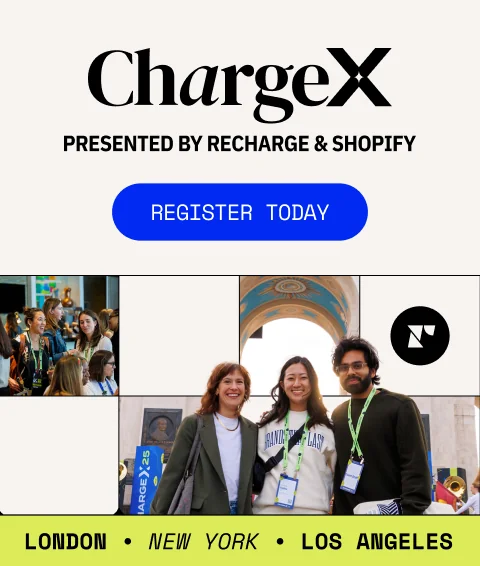The pros and cons of social media and influencer marketing campaigns
Published July 2021
Published Jul 2021
Updated July 2021
Updated Jul 2021
7 min read

AI Summary
While content marketing efforts and SEO have long been digital marketing mainstays, social media and influencer marketing have only become staples for ecommerce retailers in approximately the past half-decade. The reason for this is that each–and the combination of the two–has proven to be incredibly effective at increasing awareness, traffic, leads and sales for merchants.
While content marketing efforts and SEO have long been digital marketing mainstays, social media and influencer marketing have only become staples for ecommerce retailers in approximately the past half-decade.
The reason for this is that each–and the combination of the two–has proven to be incredibly effective at increasing awareness, traffic, leads and sales for merchants.
As a result, Statista data shows that the global influencer market size is expected to reach $13.8 billion in 2021.
However, despite the wild popularity of social media and influencer marketing campaigns, there are still considerable drawbacks to the practice that merchants must be aware of before launching such an initiative.
That said, let’s take a look at the risks and rewards that retailers should expect from influencer marketing campaigns.
Social media and influencer marketing: the pros
For those who are unaware, influencer marketing is a promotional strategy wherein businesses partner with influential industry voices to amplify their company, products or services and promote these things to a relevant audience.
While influencer marketing is often combined with social media marketing to reach prospective buyers, on its own, social media marketing is merely the use of social networks to market a brand’s products or services.
As it stands, there are a panoply of benefits to be reaped from combining influencer-led and social media marketing efforts.
Some of the most notable of the bunch include:
Instant trust and credibility
Building trust with consumers is one of the most challenging tasks a brand faces in today’s increasingly skeptical consumer landscape.
However, by partnering with industry influencers, retailers can instantly earn credibility with audiences as online personalities promoting a product or service shows consumers that the brand and its products are worthwhile. This is especially important for direct-to-consumer (DTC) brands with which buyers may not be familiar.
Moreover, consumers want to see products being used in the wild, thereby providing them an authentic feel for the item. Influencers not only fulfill this desire with their content, but they also link the product to their integrity and personal flair in the minds of potential buyers.
That said, for sellers to reap this benefit, it is critical to find the right influencers for the brand.
Broadens the company’s reach
Social media eCommerce marketing strategies, particularly when paired with influencer marketing tactics, provides retailers with unparalleled reach. Through this combination of tactics, retailers can reach anywhere from tens of thousands to millions of potential customers.
However, the extent of the campaign’s reach will largely depend on the kind of influencers whom sellers opt to leverage and the size of their audiences. While some brands will contract social superstars for their campaigns, others find micro-influencers to be more effective.
Increased sales
There is little doubt that the combination of social media and influencer marketing is highly effective at driving sales. If this methodology did not work, marketers would have abandoned it by now.
However, as influencer marketing statistics show:
“Slightly more women (89 percent) than men (83 percent) in the United States carry out purchases after getting inspired by influencers.”
Drilling down more deeply to understand the ROI of such campaigns, a 2019 influencer marketing benchmark report showed an average value of $5.20 for each $1 spent on influencer marketing.
Reduced sales cycles
Again, the most challenging part about increasing conversion rates is gaining a customer’s trust.
However, through the use of influencer marketing, social media personalities lend brands their credibility, as discussed earlier.
As a result of this dynamic, many of their followers will make a purchase much faster than if they were to discover the brand organically, thus reducing the sales cycle considerably.
While this is all excellent news for those who are interested in utilizing influencer marketing, there are some drawbacks to be considered and explored as well.
Social media and influencer marketing: the cons
The fact is that merchants must be cautious when launching influencer marketing campaigns, as they could run into the following pitfalls:
Damage to a brand’s reputation
Part of what makes influencers, well, influential, is their genuine and authentic nature. If consumers find out that social media personalities are untrustworthy, that person’s career is likely over.
Therefore, it is imperative for sellers to consider what would happen to their brand reputation and sales volume if an influencer reviewed their product and cast it in a negative light.
Similarly, if a company is not pleased with an influencer’s performance, it could lead to some high–and highly public–tensions, as was seen in the Faith Ordway and Purely White debacle, which resulted in the brand being boycotted.
Therefore, when partnering with influencers, it is critical to:
- Ensure products are of the highest quality
- Partner with relevant influencers who have a good track record of working with businesses
Partnering with the wrong influencers
Almost as bad as having a company’s reputation destroyed by an influencer is contracting with the wrong influencers.
If a brand fails to do their due diligence and partners with social celebrities who should not have anything to do with their company or are just a poor match, it could end up annoying the brand’s current and potential customers, as well as the influencer’s followers.
In this scenario, all parties lose.
Similarly, some influencers have shown little interest in holding up their end of the bargain with brands. For instance, there have been a slew of instances where influencers put in the absolute bare minimum effort to promote a product (thereby producing dismal results) but still expect full compensation.
Therefore, it is essential for sellers to do a couple of things before signing on the dotted line, including:
- Take the time necessary to seek out and form relationships with the right social media influencers.
- Ensure that campaign expectations and demands are clearly outlined in the marketing contract
(Potentially) high costs
Some of the most popular influencers on social media command tens to hundreds of thousands of dollars per post.
Truthfully, most brands cannot pay those kinds of prices, so they seek lower-tier influencers. However, when looking at average influencer rates, even the mid-tier individuals can cost thousands per post.
For instance, when looking at Instagram influencer costs, Instagrammer Matt Crump (who boasts upwards of 250,000 followers) shared his own rates chart which shows that those with 50,000 – 250,000 followers could garner anywhere between $1,500 and $6,000 per post.
It is, in part, for this reason why many sellers instead opt to partner with a team of micro-influencers to produce content instead of one or two of their more sizable counterparts.
As a means of avoiding all of these potential influencer marketing pitfalls, it is wise for brands to partner with an eCommerce social media marketing agency that can navigate these problem areas and help to produce a profitable campaign.
Through partnering with an agency that can seek out micro-influencers for a campaign, retailers can mitigate most (if not all) of the potential downfalls listed in this piece.
Is social media and influencer marketing worth it?
When contemplating if it is worth it for a brand to get into influencer marketing, the answer is yes.
However, that does come with a caveat.
If merchants are serious about leveraging social media and influencer marketing as a means of increasing value and customer engagement, it is critical to conduct a deep level of research to find the right influencers for their brand. This does not just mean those who align with the company and speak to the brand’s target audience, but also the size influencer appropriate for the campaign’s goals.
Achieve these aims, and the pairing of social media and influencer marketing could be a hit for your company.
Remember, it’s about delivering the right messages to the places your customers are. Omnichannel marketing, with segmentation at its heart, is your opportunity for improving the customer journey.
—–
GUEST AUTHOR:
Ronald Dod is the former Chief Marketing Officer and Co-founder of Visiture, an end-to-end ecommerce marketing agency focused on helping online merchants acquire more customers through the use of search engines, social media platforms, marketplaces, and their online storefronts. His passion is helping leading brands use data to make more effective decisions in order to drive new traffic and conversions.

Categories





